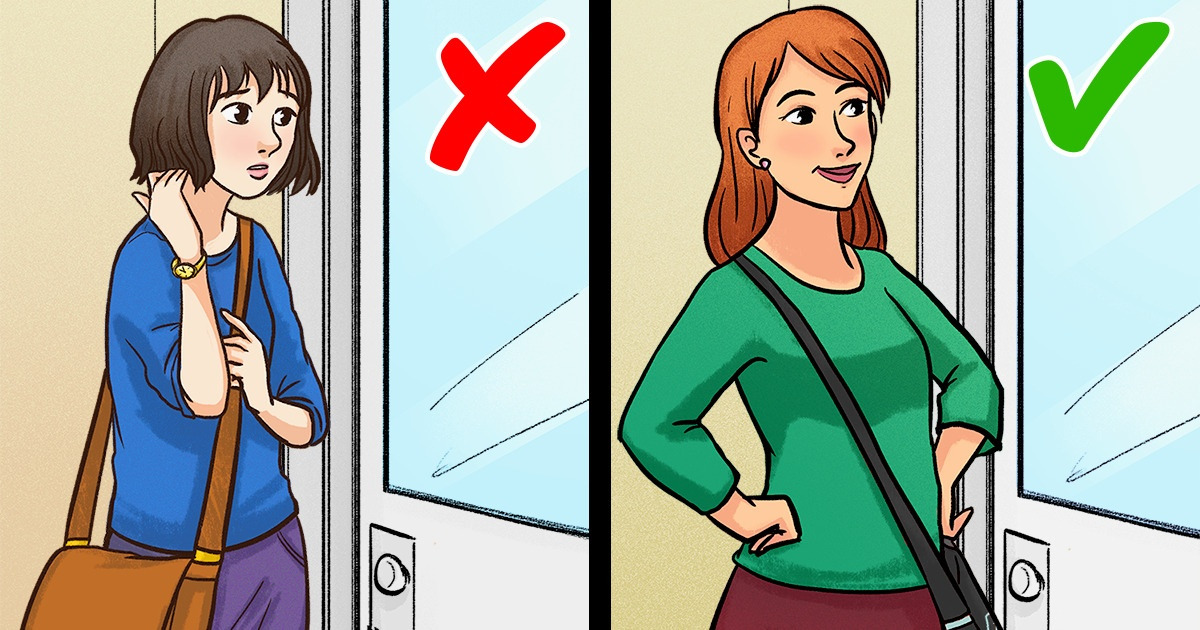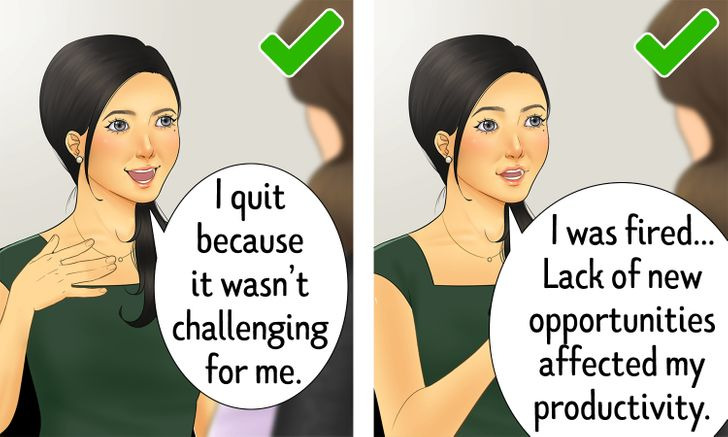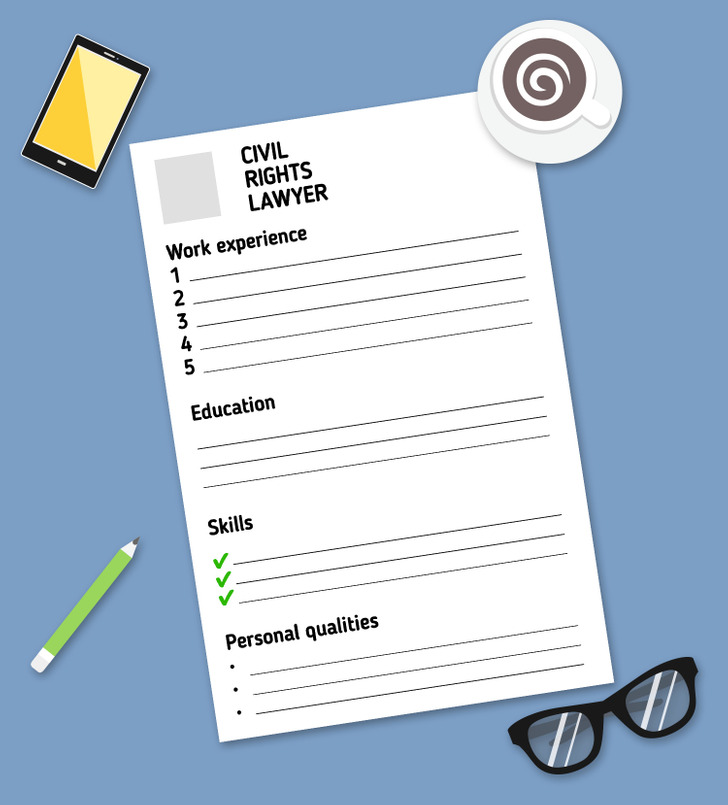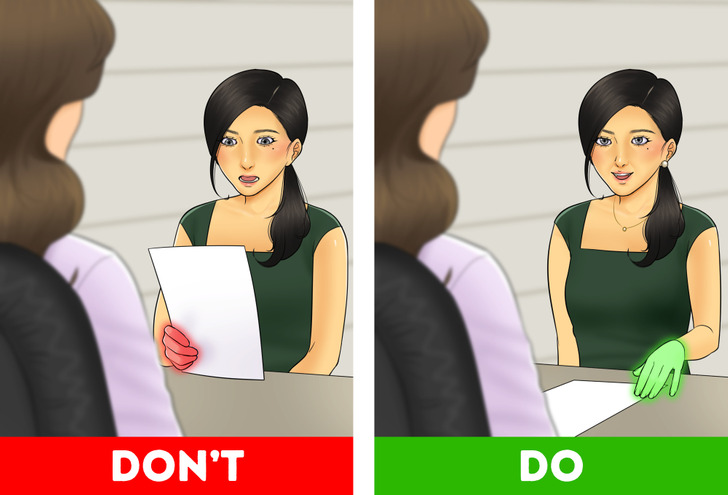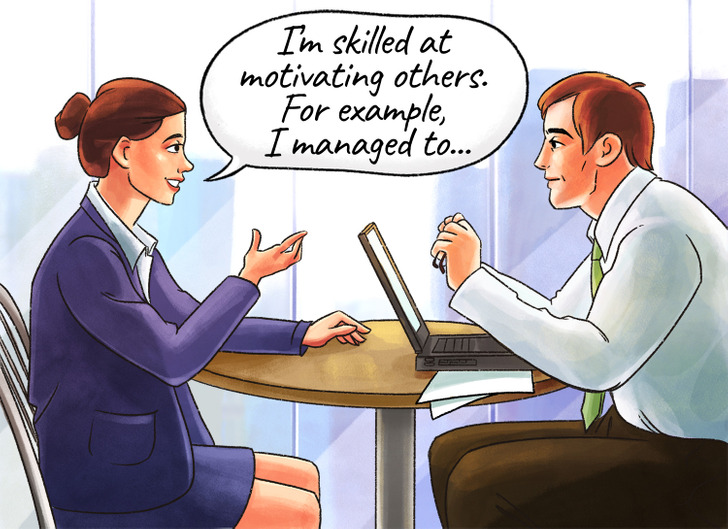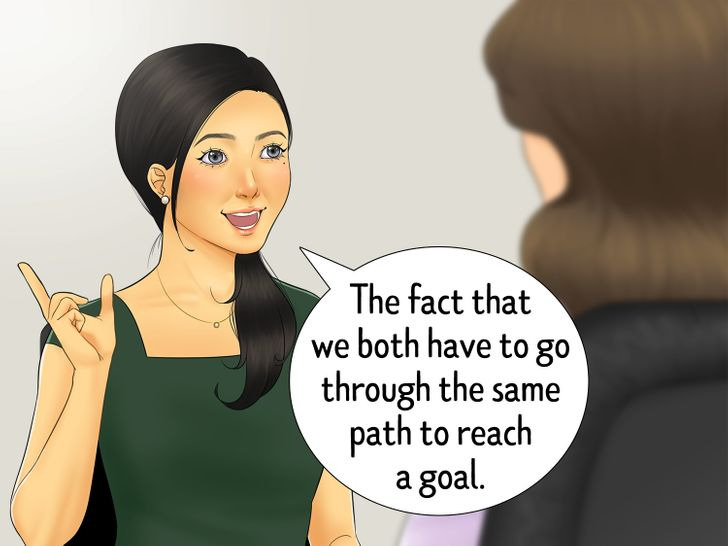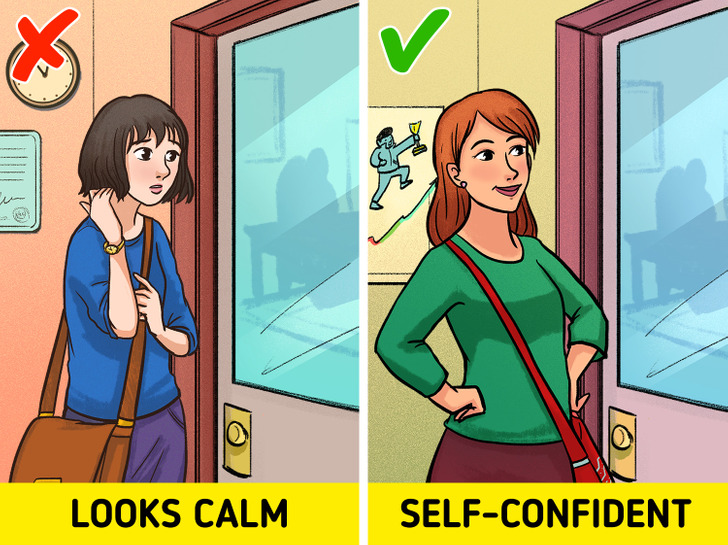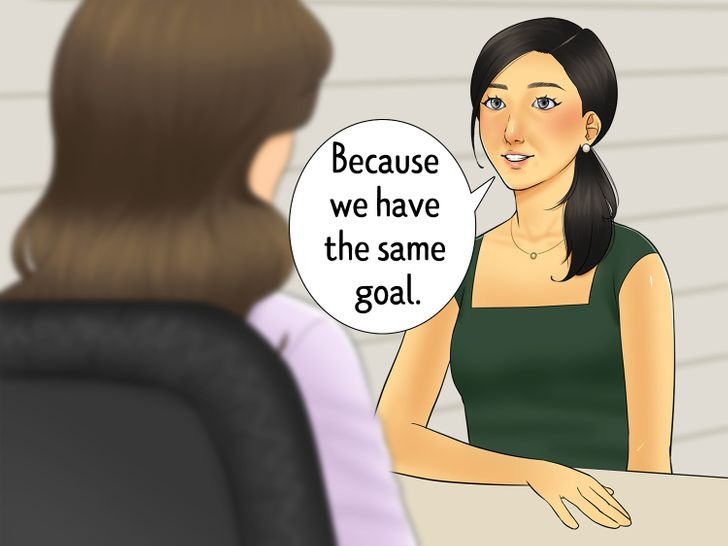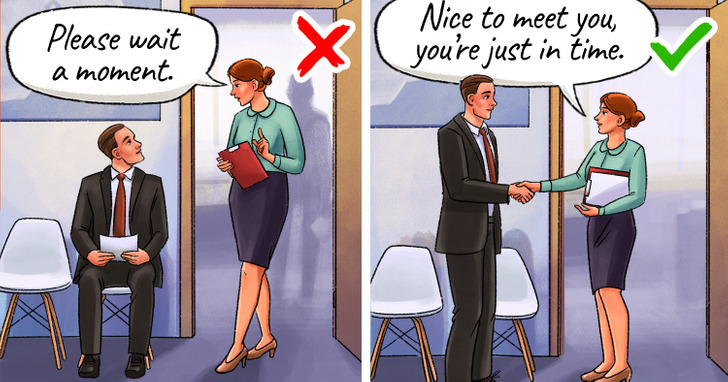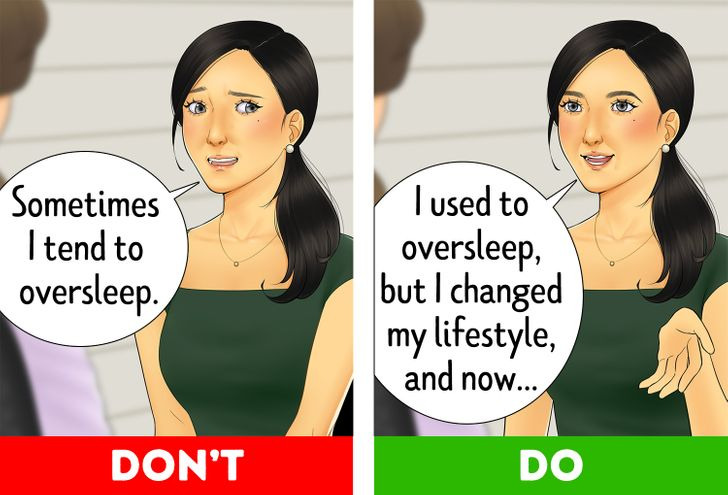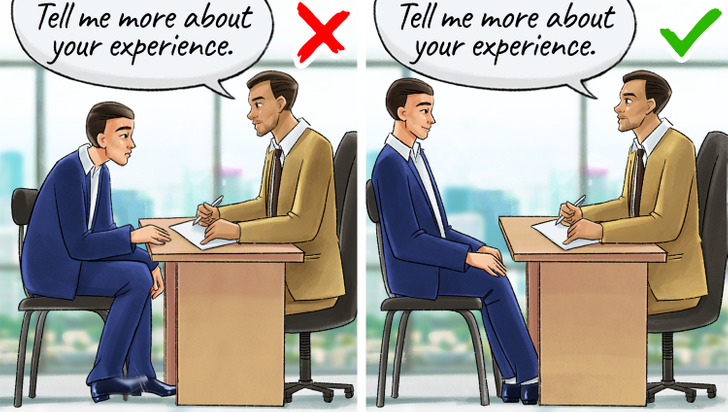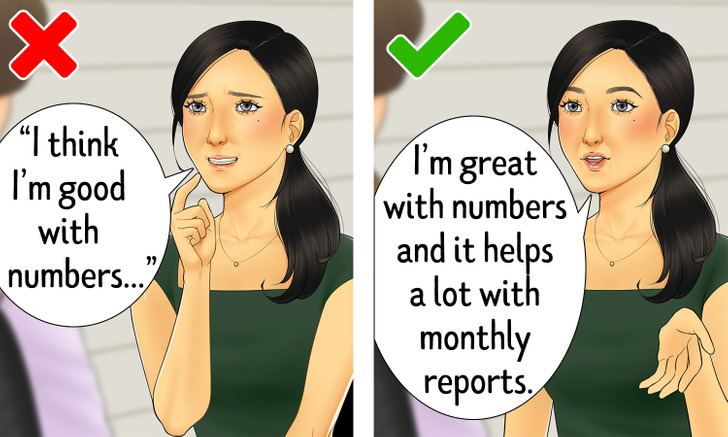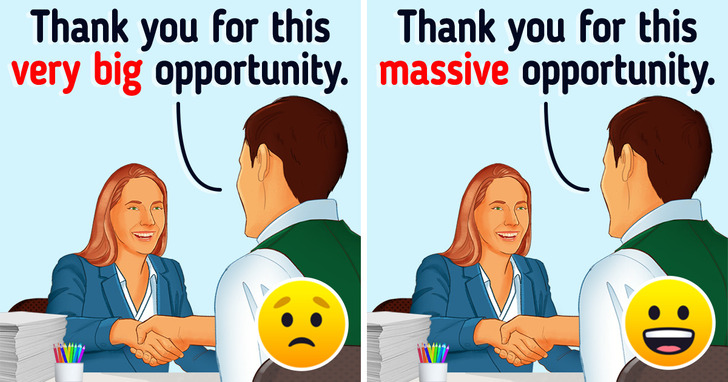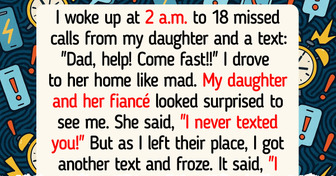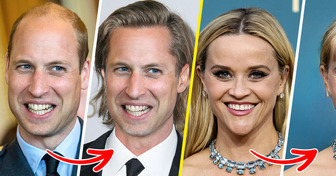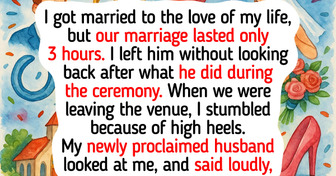Making a bad impression is something many people fear while on the job hunt. It’s very easy to let your stress dominate you and say the wrong thing without even realizing it. Also, your body language might give off the wrong vibe that will make your interviewer dislike you from the get go. That’s why it’s important to know what you should avoid and what you should do if you want to ace any job interview.
Getting a job can be hard and that’s why Now I’ve Seen Everything compiled a list of useful tips that can help you impress your interviewer.
1. Research the company’s dress code
By doing some research on the company and their dress code before the job interview you can have a sense of their work culture and what level of formality they deem acceptable. What you can do in preparation is check their photos online and get a clear picture of what people wear when they are at the office.
2. How to answer to the interview question “Tell me about yourself”
It might seem like a simple interview question and an ice breaker but the hiring manager can tell a lot about you once they hear your answer. What they want to hear from you is:
- The journey through your career. Ex. “I started with training during high school... In college, I participated in events... When I graduated I had a job in...”
- What made you start working toward your career in the first place. Ex. “While I was taking a few classes about coding I realized that the sky is not even my limit...”
3. Choose the colors well
- Gray — Shows how analytical, logical, or independent you are. Wearing it with confidence might tell the hiring manager that you can think for yourself.
- White — This is a safe color to wear and it will show that you are organized.
- Black — Represents exclusivity, sophistication, and leadership. It’s good for high-level interviews but it’s better to avoid it for entry-level jobs like customer service and retail.
- Blue — Shows trust and confidence. It will tell the hiring manager that you are a true team player.
- Red — It’s a great choice of color if you want to persuade someone. This is because it shows power, passion, and that you are energetic with a lot of courage and excitement. However, be careful with this color because it can also mean defiance and hostility.
- Yellow, green, and purple — These vivid colors can tell that you are fun but they might not be the first colors you should consider for an interview because they don’t show feelings of trust or commitment.
- Brown — It’s an earthy color that shows dependability and reliability. However, it’s an old-fashioned tone which means you should be careful how you wear it.
4. How to answer to the interview question “Why did you leave your last job”
There can be a lot of different reasons why you left your last job but there is only one reasonable answer that hiring managers want to hear from you.
- Tell them that you are looking for more of a challenge.
- Explain that you are looking for better opportunities, more responsibility, and that you want to grow.
Important: If you were fired or laid off tell them the truth. But do it in a good way, like maybe you just outgrew it there.
5. How to create a good CV
- Choose a convenient file format. The universally accepted CV format is a PDF.
- Write your contact and personal information at the beginning of the CV. You need to write your last name, first name, phone number, e-mail, and a link to your social media page (if the page is about work). If it’s your personal page, don’t link it in the CV.
- Follow the correct order. CVs start with work experience. Then, education, skills, and personal qualities follow.
- Prepare a CV for every position you want. Don’t just write “bookkeeper, finance manager, auditor.” An employer might think that you don’t know well which job you want. It’s better to create 3 separate CVs and describe the exact skills and work experience each of the positions requires.
6. How to answer to the interview question “Walk us through your resume”
Nope, they don’t want you to read them your resume during the interview. It’s your life on a piece of paper, you know it by heart and trust yourself. What they want is a recap of your experience and path. Here are a few tips:
- Start at the beginning with your education. Don’t get into details, just briefly cover a few important notes.
- Next, talk about what happened after college. What was your first job?
- Continue with the next job position up until the present.
Before you go for an interview, it is important that you review and be clear about the aspects that make you the best applicant. Think of at least one concrete fact for each of your skills. For example, you can describe how these skills enabled you to solve a problem at your previous job.
At the same time, it is important to keep in mind the reasons why you want the job and be prepared to answer this question. Highlight what interests you about the position, the benefits you find valuable, and the learning you will gain.
8. How to answer to the interview question “What motivates you”
One of the best ways to get motivated is to be excited or passionate about something. So, when talking from this point of view, the employer would like to hear what gets you excited about work. Here are a few examples of what you can talk about:
- “I am excited that the place I’ll be working has a clear vision of their goals and this keeps me motivated.”
- “The company’s goals and mission align with mine.”
9. Calm down your nerves by cheating your body
Psychological research shows that we can make ourselves look more confident in a stressful situation. All you need to do is strike a power pose for a couple of minutes. Before the job interview, straighten your shoulders, relax your back, lift your chin, or simply lean on a chair’s back. Let your body take the pose of a winner — it will help.
10. How to answer to the interview question “Why do you want to work here”
This is the question where you want to align yourself with the company’s goal. This means you need to be prepared in advance. Do some research on the company you applied to:
- Find out what is their mission, their values, and their goals.
- Answer them following your research. Because in this way that they will have someone who has the same goal and you will be the one helping them to reach theirs.
11. Get there early, but not too early
Punctuality is crucial when presenting yourself for the first time to a potential employer, as it is synonymous with professionalism. Therefore, it is advisable to arrive 5 to 10 minutes early to the interview so as not to look rushed or against the clock.
However, it is recommended to not exceed this window of time, since it can add extra pressure to the person conducting the interview, who will probably have more candidates to receive during the day.
12. How to answer to the interview question “What are your weaknesses”
This question can easily break many people. But you don’t want to just talk about having a short temper, or other negative qualities. They need to see how you’ve overcome your issue and how you dealt with your problem. Here is how to answer this one:
- Tell them about a weakness you had in the past but have already overcome.
- Walk them through how you did it.
- Or you can talk about a weakness that is not related to your job position. But again one that you had in the past and overcame.
13. Watch your body language
Since your posture and gestures can say a lot about your personality, it is important that you handle them properly when presenting yourself to your potential new employer.
Make sure you stand up straight, avoid nervous movements with your hands and feet, and above all, smile without overdoing it. All of this will reflect security, warmth, and naturalness during the interview.
14. How to answer to the question “What are your strengths?”
This is another opportunity to sell your qualities and talk about what you are great at. You could be good at managing, talking to people, etc. No matter what it is, it’s essential to success to:
- Know exactly what they are looking for, so read the job description thoroughly to really understand.
- Connect your qualities with what they are looking for, try to fit yourself in.
- Prepare in advance by asking yourself, “Where can I help out?” or “How has my past experience has prepared me for this position?”
15. Choose the right words
- To make your speaking stand out and ace the interview, avoid using very with an adjective or verb to describe something. English allows you to replace that formation with simpler one-word adjectives that make you sound more concise and professional.
- The overuse of “very” can also make you sound repetitive.
For example: “This presentation was very good and very interesting.” A smarter sentence would be: “This presentation was excellent and captivating.”
Do you use any of these tips during your interviews and have you found them to be effective? When did you last ace an interview? Tell us your experience!

